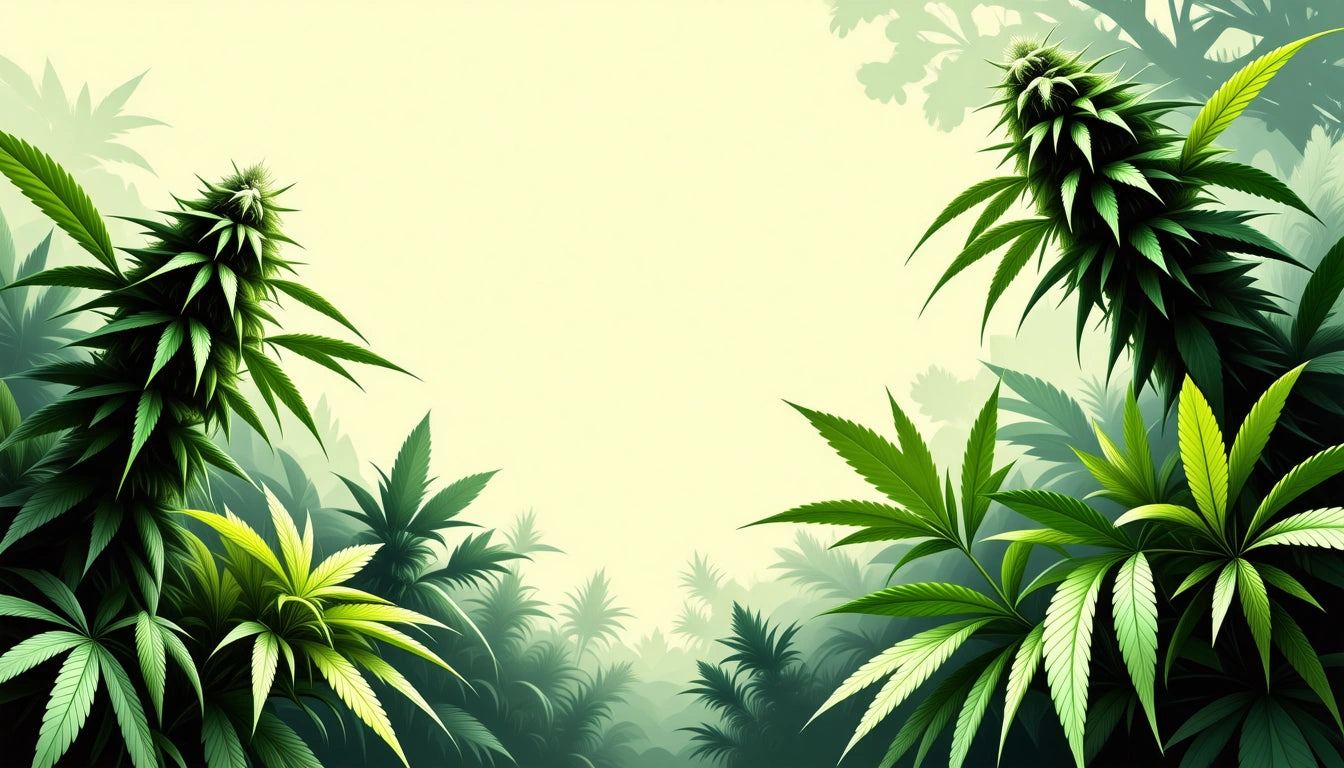Table of Contents
Understanding the Differences: Delta-8, Delta-9, and CBD Compared
The cannabis and hemp marketplace has expanded dramatically in recent years, introducing consumers to a variety of cannabinoids beyond traditional marijuana. Delta-8 THC, Delta-9 THC, and CBD have emerged as popular options, each with distinct properties and effects. Understanding these differences is crucial for consumers seeking specific benefits or experiences from cannabis products.
Cannabinoid Basics: What Are Delta-8, Delta-9, and CBD?
Cannabinoids are compounds that interact with the body's endocannabinoid system. While there are over 100 cannabinoids in the cannabis plant, Delta-8 THC, Delta-9 THC, and CBD have gained significant attention.
Delta-9 THC
Delta-9 tetrahydrocannabinol (Delta-9 THC) is the primary psychoactive compound in cannabis. It's responsible for the traditional "high" associated with marijuana use. As explained in our guide on Delta-9 vs traditional weed, this cannabinoid binds strongly to CB1 receptors in the brain.
Delta-8 THC
Delta-8 THC is a less potent analog of Delta-9. It has a similar structure but produces milder psychoactive effects. Many users report a clearer high with less anxiety and paranoia compared to Delta-9. Our detailed guide to Delta-8 uses and benefits covers this cannabinoid's growing popularity.
CBD (Cannabidiol)
CBD is non-psychoactive, meaning it doesn't produce a high. It's prized for potential therapeutic benefits without intoxication. The question of what is delta 8 cbd often arises from confusion, as they're separate compounds often found together in products.
Chemical Structure and Extraction Methods
The molecular structures of these cannabinoids are remarkably similar, with subtle differences that significantly impact their effects.
Delta-9 THC and Delta-8 THC differ only in the placement of a double bond in their carbon chain. In Delta-9, this bond is on the ninth carbon, while in Delta-8, it's on the eighth. This slight variation changes how they bind to receptors in the body.
CBD has the same molecular formula as THC variants but a completely different arrangement of atoms, explaining its non-psychoactive nature.
Extraction methods also vary. Delta-9 THC is abundant in cannabis and easily extracted. Delta-8 occurs naturally in minimal amounts, so it's typically converted from CBD through a chemical process. CBD is primarily extracted from hemp plants using CO2 or solvent extraction.
Effects Comparison: Psychoactive Properties and Benefits
When comparing delta-8 vs cbd or delta 9 vs cbd, the most notable difference lies in their psychoactive properties.
Psychoactive Effects
- Delta-9 THC: Produces strong psychoactive effects, including euphoria, altered perception, and in some cases, anxiety or paranoia.
- Delta-8 THC: Offers milder psychoactive effects, often described as providing relaxation and clarity without intense intoxication.
- CBD: Non-psychoactive, producing no high while potentially offering therapeutic benefits.
Potential Benefits
Each cannabinoid has been studied for various potential benefits:
- Delta-9 THC: Pain relief, appetite stimulation, nausea reduction, and mood enhancement.
- Delta-8 THC: Similar benefits to Delta-9 but with reduced side effects, making it appealing for those sensitive to THC.
- CBD: Anti-inflammatory properties, anxiety reduction, seizure management, and potential neuroprotective effects.
As explained in our comparison of Delta variants, these effects vary significantly between individuals.
Legal Status and Regulatory Considerations
The legal landscape for these cannabinoids varies significantly:
- Delta-9 THC: Federally illegal when exceeding 0.3% in dry weight, though legal in states with recreational or medical marijuana programs.
- Delta-8 THC: Exists in a legal gray area. While technically derived from federally legal hemp, some states have specifically banned it.
- CBD: Federally legal when derived from hemp containing less than 0.3% Delta-9 THC, though regulations vary by state and product type.
This complex regulatory environment creates challenges for both consumers and businesses in the cannabis industry.
Interaction Effects: Does CBD Counteract Delta-9?
A common question is: does cbd counteract delta 9? Research suggests CBD may modulate the effects of THC through several mechanisms:
- CBD may reduce anxiety and paranoia sometimes associated with Delta-9 THC.
- It can compete with THC for binding sites in the endocannabinoid system.
- CBD may influence how the body metabolizes THC, potentially altering its effects.
This interaction, often called the "entourage effect," suggests that cannabinoids work differently together than in isolation. Many users report that CBD helps balance the intense psychoactive effects of Delta-9 THC, though individual experiences vary widely.
For those concerned about THC intensity, products with balanced CBD:THC ratios may provide more manageable effects than high-THC products alone.
Choosing the Right Product for Your Needs
When deciding between what is delta 9 cbd and other cannabinoid products, consider these factors:
- Desired Effects: For psychoactive effects, Delta-8 or Delta-9 products may be appropriate. For non-intoxicating benefits, CBD is preferable.
- Tolerance: Those new to cannabinoids might start with CBD or low-dose Delta-8 before trying Delta-9 products.
- Legal Considerations: Your location determines which products are legally accessible.
- Product Quality: Look for lab-tested products with clear labeling of cannabinoid content.
Understanding the differences between delta-8 vs cbd and delta 9 vs cbd empowers consumers to make informed choices aligned with their wellness goals and preferences. As the cannabis market continues to evolve, education about these distinctions becomes increasingly important for both consumers and industry professionals.











Leave a comment
All comments are moderated before being published.
This site is protected by hCaptcha and the hCaptcha Privacy Policy and Terms of Service apply.